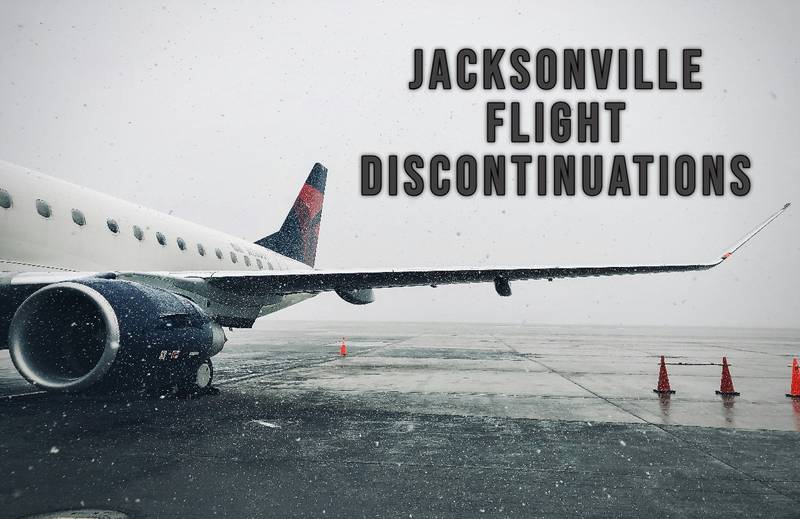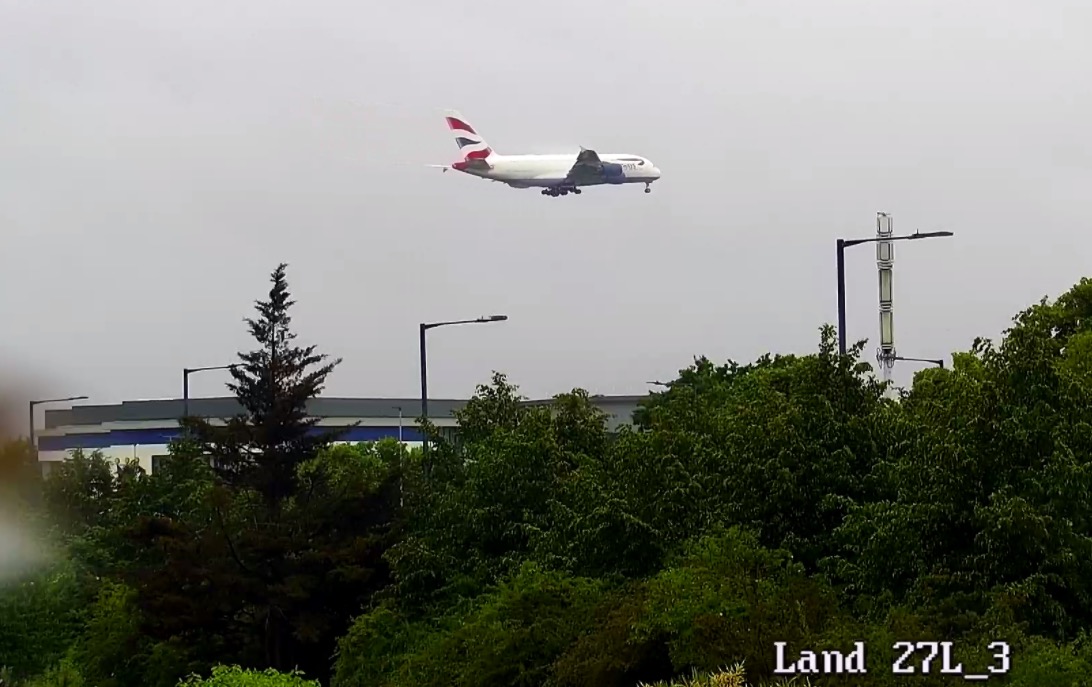Jacksonville Flight Discontinuations: Causes, Impacts, and What Travelers Should Know
Introduction
Over the past few years, Jacksonville flight discontinuations have become a topic of major concern for travelers, airlines, and the local economy. The sudden reduction or cancellation of flights at Jacksonville International Airport (JAX) and nearby regional airports has raised questions about airline strategy, demand shifts, and broader economic trends.
Whether it’s due to airline restructuring, fuel costs, pilot shortages, or post-pandemic travel patterns, the effects of these discontinuations are far-reaching. This article explores the real reasons behind Jacksonville flight discontinuations, how they affect travelers and businesses, and what to expect for the future of air travel in the region.
Understanding Jacksonville Flight Discontinuations
Flight discontinuations occur when airlines suspend, cancel, or permanently remove certain routes from their schedules. In Jacksonville’s case, several airlines have re-evaluated their routes over the past few years due to economic pressures and industry shifts.
What Does “Flight Discontinuation” Mean?
In aviation terms, a “flight discontinuation” doesn’t always mean an airline is leaving a city entirely. It often refers to:
- Route cancellations (ending flights to specific destinations).
- Seasonal suspensions (temporary stoppage during low-demand periods).
- Permanent withdrawals (complete removal of service due to profitability concerns).
Jacksonville, being a mid-sized airport hub, is particularly sensitive to these decisions because smaller markets tend to be the first affected when airlines adjust routes.
Main Reasons Behind Jacksonville Flight Discontinuations
There are multiple factors contributing to the discontinuation of flights in Jacksonville, ranging from global industry trends to local economic realities.
1. Airline Network Restructuring
Airlines constantly review performance data to optimize routes. If a route from Jacksonville to another city has low passenger loads or high operational costs, it’s often discontinued in favor of more profitable hubs.
- Carriers may consolidate flights into larger airports like Atlanta, Charlotte, or Miami.
- Regional routes may be merged or shifted under code-share agreements with partner airlines.
2. Pilot and Crew Shortages
The global aviation industry continues to face a shortage of trained pilots and flight crews. Many senior pilots retired early during the pandemic, and training new personnel takes time. This shortage has forced airlines to:
- Reduce flight frequencies.
- Prioritize major routes over smaller ones (like Jacksonville connections).
As a result, secondary airports like JAX often experience flight reductions first.
3. Fluctuating Fuel Prices
Jet fuel costs represent one of the largest operational expenses for airlines. When prices rise sharply, airlines re-evaluate all routes and may discontinue low-demand flights to control losses.
Jacksonville’s medium-sized market makes certain long-distance routes less economically viable during high-fuel-cost periods.
4. Demand Changes Post-Pandemic
Passenger demand has changed dramatically since 2020. While leisure travel rebounded quickly, business travel — once a key revenue source for Jacksonville — has lagged due to virtual meetings and remote work trends.
Airlines adjust their schedules based on real-time demand. Routes that once depended on corporate travelers may now see insufficient ticket sales to justify daily operations.
5. Competition and Overlap
Nearby airports, such as Orlando International (MCO) and Tampa International (TPA), offer extensive flight networks and often lower fares. Travelers from North Florida sometimes choose to fly from these hubs, indirectly reducing Jacksonville’s passenger volumes and making some routes unsustainable.
6. Airline Mergers and Market Consolidation
As airlines merge or form alliances, they streamline operations to eliminate redundant routes. If two merged carriers both served Jacksonville, one may drop overlapping routes to reduce costs and improve efficiency.
Impact of Flight Discontinuations on Jacksonville
The ripple effects of flight discontinuations extend far beyond just flight schedules. They influence the city’s economy, tourism, job market, and overall connectivity.
1. Impact on Travelers
- Reduced Connectivity: Fewer direct flights mean travelers must make more connections.
- Higher Airfares: Lower route competition often leads to increased ticket prices.
- Inconvenience: Travelers may face longer travel times or be forced to depart from neighboring airports.
2. Economic Impact
Jacksonville’s tourism, hospitality, and business sectors rely heavily on air connectivity. Fewer flights mean:
- Lower visitor numbers.
- Reduced business travel.
- Economic losses for local hotels, restaurants, and car rental services.
According to industry trends, every 1% reduction in available flights can lead to significant revenue declines in tourism-dependent cities.
3. Employment Impact
Airlines, ground services, and airport vendors may reduce staff when flight frequencies drop.
This can affect:
- Airline staff (pilots, attendants, ground crew).
- Airport contractors.
- Local transport and logistics companies.
4. Airport Revenue
Airports earn income from landing fees, parking, retail spaces, and fuel sales. Fewer flights directly translate into reduced airport income, affecting its ability to expand or improve infrastructure.
How Jacksonville Is Responding
Despite these challenges, Jacksonville International Airport (JAX) and local authorities are taking proactive steps to restore and expand flight connectivity.
1. Attracting New Carriers
Airport management has launched incentive programs to attract new airlines and encourage route expansion.
This includes:
- Temporary fee reductions for new routes.
- Marketing partnerships with local tourism boards.
- Collaboration with budget airlines to expand affordable options.
2. Strengthening Existing Routes
Airlines that continue operating from Jacksonville are receiving support through joint promotions and improved facilities to maintain strong passenger demand.
3. Infrastructure Investments
Jacksonville Aviation Authority (JAA) has committed to terminal upgrades and runway improvements to handle larger aircraft and attract long-haul carriers in the future.
4. Focus on Regional Connectivity
Even if long-haul routes are discontinued, Jacksonville is boosting its regional connections to major hubs such as Atlanta, Charlotte, and Dallas — ensuring that passengers still have access to global destinations through one-stop connections.
Airlines Most Affected by Jacksonville Route Changes
Several major airlines have adjusted their Jacksonville operations in recent years. While not all have completely withdrawn, some have scaled back frequency or destination coverage.
Examples include:
- Delta Air Lines: Focused more on connecting flights through Atlanta.
- American Airlines: Adjusted routes to prioritize Charlotte and Dallas-Fort Worth hubs.
- Southwest Airlines: Reduced less-profitable routes during off-peak seasons.
- JetBlue and Frontier: Periodically adjust routes based on seasonal demand trends.
These adjustments are part of larger national network strategies and are not unique to Jacksonville, though the city’s size makes it more visible locally.
How Travelers Can Adapt to Jacksonville Flight Discontinuations
While airlines and airports manage the supply side, travelers can take several steps to minimize inconvenience caused by route reductions.
1. Stay Flexible with Dates and Times
Flights on weekdays or off-peak hours are less likely to be canceled and often cheaper.
2. Explore Nearby Airports
If your desired route is discontinued, consider:
- Orlando International Airport (MCO) — 2 hours south.
- Savannah/Hilton Head International (SAV) — about 2.5 hours north.
These airports may offer better connectivity or direct options.
3. Use Fare Alerts and Booking Tools
Setting up fare alerts helps travelers find the best prices on limited routes from Jacksonville.
4. Join Airline Loyalty Programs
Frequent flyer memberships can provide priority rebooking in the event of cancellations or route changes.
5. Book Early for Seasonal Routes
Some flights only operate during specific months. Early booking ensures availability during the active period.
The Future of Air Travel in Jacksonville
Experts predict that Jacksonville’s air travel industry will stabilize and recover gradually as global aviation trends shift toward sustainability and digitalization.
Key Future Trends Include:
- Rise of Low-Cost Carriers (LCCs): More budget airlines may enter the Jacksonville market.
- Smaller, Efficient Aircraft: Airlines may use next-gen regional jets to make smaller markets viable again.
- Hybrid Business Models: Combining cargo and passenger services for better profitability.
- Sustainable Aviation: Biofuel initiatives and carbon offset programs to attract eco-conscious travelers.
As business travel and tourism regain strength, Jacksonville could see a return of previously discontinued routes, especially to major business and leisure destinations.
FAQs About Jacksonville Flight Discontinuations
Q1: Why are so many flights being discontinued in Jacksonville?
Flight reductions stem from multiple factors like pilot shortages, fuel costs, and changing travel demand post-pandemic. Airlines are optimizing routes to focus on profitability.
Q2: Are these discontinuations permanent?
Not necessarily. Some flights are only seasonally suspended or temporarily paused while demand recovers.
Q3: Which airlines are most affected?
Major U.S. carriers such as Delta, American, and Southwest have adjusted their Jacksonville routes based on traffic and operational costs.
Q4: How can I stay updated on new routes from JAX?
Follow Jacksonville International Airport’s flight schedule updates or sign up for airline newsletters to receive notifications about new routes or resumed flights.
Q5: Will Jacksonville get new international routes soon?
While international expansion is limited in the short term, future developments are expected as passenger demand grows and new partnerships form.
Conclusion
The trend of Jacksonville flight discontinuations reflects a complex mix of global aviation challenges, local market realities, and post-pandemic restructuring. While the immediate impact on travelers and businesses is undeniable, the long-term outlook remains cautiously optimistic.
With strategic airport initiatives, growing regional demand, and the entry of low-cost carriers, Jacksonville’s aviation sector is poised for gradual recovery.
For travelers and local businesses, staying informed and flexible will be key. As airlines continue to rebalance their networks, Jacksonville may soon regain — and even expand — its air connections, bringing renewed growth and opportunity to the city’s vibrant economy.





6 comments